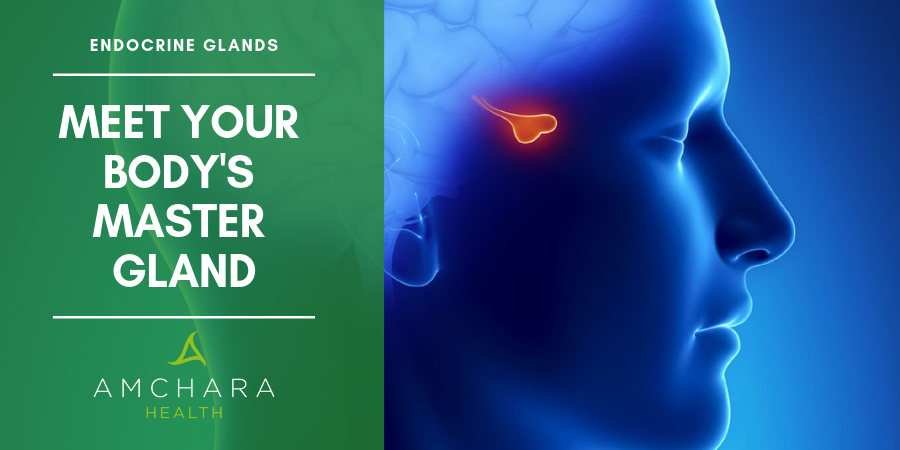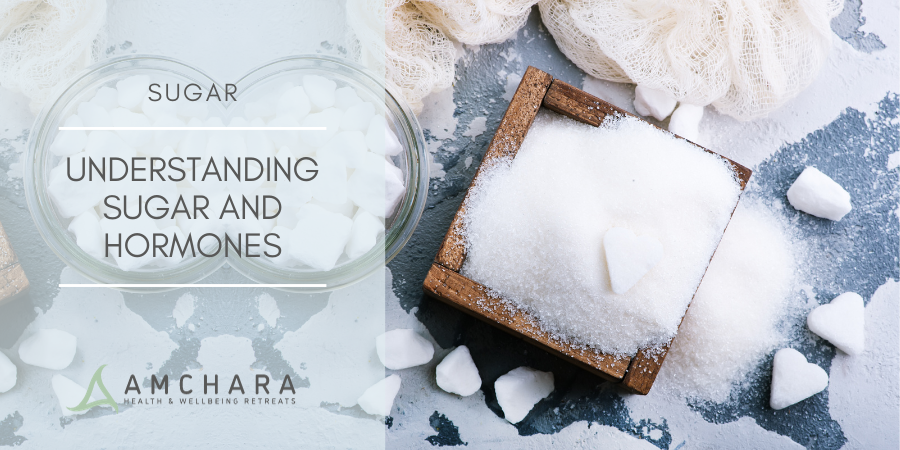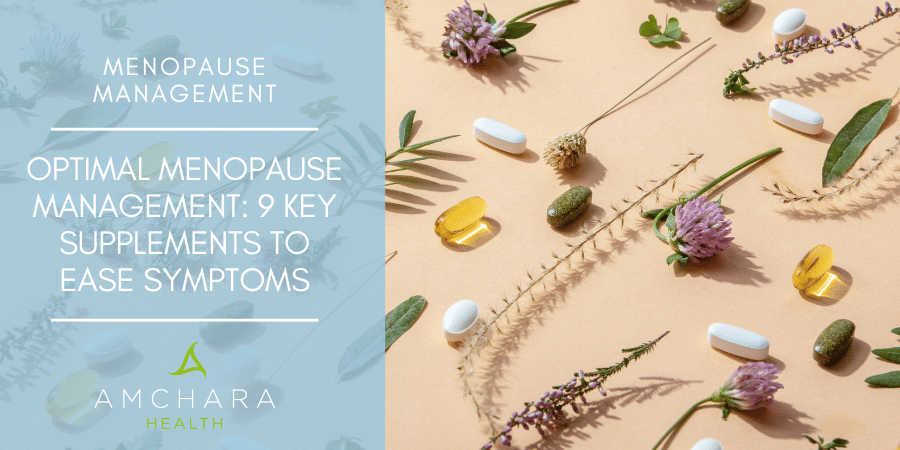Understanding the pituitary gland
Table of contents:
What is endocrinology?
Endocrinology concerns the study of endocrine glands and hormones. Our endocrine glands make up our endocrine system.
Our body’s cells cannot function in isolation – cells communicate with each other by sending and receiving signals, or chemical messages. The stimulus for these signals may originate from inside our bodies – like the level of sugar in our blood, or from outside – such as temperature.
The messengers that carry the signals around our body are called hormones, essential for our survival. They control our temperature, sleep, mood, stress, growth – in fact, all our body’s processes.
What are our endocrine glands called?
We have eight major endocrine glands. They are:
-
Hypothalamus – a part of the brain which oversees and directs the entire endocrine system.
-
Pineal gland – this endocrine gland is located in the brain and produces melatonin, which regulates our sleep/wake cycle.
-
Pituitary gland – we’ll talk about this gland in detail later in this article.
-
Thyroid gland – produces thyroid hormones, which control our rate of metabolism, or the rate at which the chemical processes occur inside our cells, including burning fuel for energy.
-
Parathyroid glands – there are four parathyroid glands which produce parathyroid hormone, whose role is to regulate the levels of calcium in the blood.
-
Adrenal glands – these two glands produce hormones such as cortisol, in response to stress.
-
Pancreas – produces insulin to regulate blood sugar levels.
-
Reproductive glands – the ovaries and testes produce oestrogen, progesterone and testosterone.
What is the importance of the endocrine system?
Our bodies are designed to be in balance and he chemicals in our blood must be kept steady to maintain optimal balance.
For example, a certain level of sugar in the blood is essential for life because it provides energy for our cells. But when there is too much sugar in the blood, it can damage organs, nerves and blood vessels. If, on the other hand, blood sugar drops too low, cells particularly those in the brain, become starved of fuel, resulting in dizziness and trouble thinking.
In response the body releases chemicals like adrenaline to bring the blood sugar up again causing rapid heartbeat and an increase in blood pressure.
How does the endocrine system control body processes?
Endocrine glands release hormones which affect the body either by altering how our genes express themselves, or by influencing enzymes which determine the rate of chemical reactions.
Because hormones are secreted directly into the blood, they can come into contact with any body cell. However, because only specific cells have receptors for specific hormones, they only affect cells known as target cells. The action of a hormone depends on which type of cell they bind to. Each hormone can bind to many different types of target cells.
The endocrine system works according to regulatory mechanisms called ‘negative feedback loops.’ In other words, when a hormone is released it causes a change in the body. The cells producing the hormone then detect the change and stop producing it.
This is a somewhat simplistic explanation, as within the endocrine system there are complex interrelationships between releaser hormones, inhibitor hormones, and the hormones themselves.
What is the link between the nervous and endocrine systems?
The hypothalamus, although an endocrine gland itself, is part of the brain. It constantly receives information from cells all over the body and produces hormones to instruct the endocrine glands to return the body to homeostasis. It’s a bit like the managing director of a company making all the big decisions to keep the company in business.
The pituitary gland, which is part of our brain stem, has a close connection with the hypothalamus. They both have a close connection with our adrenal glands, and their relationship is referred to as the HPA axis. The functioning of this relationship can often become disordered which, according to Ben Greenfield, lies at the root of problems such as chronic fatigue.
Let’s have a detailed look at this gland and its wide-ranging effects.
The pituitary gland
Your pituitary gland is only about the size of a pea, yet it regulates a huge amount of the body’s processes. It sits in a bony hollow behind the bridge of the nose, just below the hypothalamus.
The pituitary gland is often called the master gland, although it is itself directed by the hypothalamus. You could think of it as the general manager of the business, receiving commands from the hypothalamus and translating these into instructions to the body’s operational managers – other endocrine glands.
The hypothalamus detects changes in the body as well as outside stimuli and in response it secretes either releasing or inhibitory hormones. These cause the pituitary to release or to stop releasing other hormones. These hormones in turn cause or inhibit the release of yet more hormones by our other endocrine glands. For example, the hypothalamus secretes growth-hormone-releasing hormone or growth-hormone-inhibiting hormone to instruct the pituitary to release, or stop releasing, growth hormones.
The pituitary gland influences the thyroid, adrenals, ovaries and testes, as well as producing its own hormones which directly influence body cells.
There are two distinct parts to the pituitary gland, the front or anterior part and the back or posterior part, and both parts have different functions.
If the pituitary gland doesn’t produce enough of one or more hormones, hypopituitarism is the result.
According to the Pituitary Foundation, there are around 70,000 patients with pituitary problems in the UK. Usually problems are caused by benign tumours affecting the pituitary gland. However, pituitary function can be affected by more subtle influences, as we’ll see.
An introduction to pituitary gland hormones
The anterior pituitary gland produces several hormones.
-
Adrenocorticotropic hormone (ACTH)
The pituitary is stimulated to release this hormone in response to corticotrophin-releasing hormone from the hypothalamus. ACTH stimulates the adrenal glands to secrete cortisol as part of our stress response.
Cortisol prepares our body to run or fight by delivering glucose to the muscles, increasing heart rate and improving perception. Disturbance to cortisol levels can influence the way our body handles sugar and can lead to insulin resistance.
-
Growth hormone
This hormone, which not surprisingly is stimulated by the release of growth hormone-releasing hormone from the hypothalamus, regulates growth and metabolism and influences body composition.
Production of growth hormone declines as we get older, and this is thought to be one of the reasons we lose muscle mass as we get beyond middle age. It’s claimed growth hormone plays a causative role in ageing, although research is lacking to support this idea.
Human Growth Hormone stimulates the production of insulin-like growth factor 1 (IGF-1) by the liver. This has cell growth-promoting effects, particularly on skeletal muscle, cartilage and nerve cells. It also appears to inhibit programmed cell death and when IGF-1 is low, inflammation tends to be high. IGF-1 and growth hormone appear to have a synergistic relationship, but science doesn’t yet understand completely how they affect us.
-
Luteinising hormone (LH) and follicle stimulating hormone (FSH)
The release of these hormones is stimulated by the release of gonadotrophin-releasing hormone from the hypothalamus. LH and FSH play important roles in reproduction. They send messages to the ovaries to stimulate the production of oestrogen and progesterone and cause the development of female eggs and ovulation in females. They also stimulate the production of testosterone and sperm in males.
-
Prolactin
Production of prolactin is regulated by the amount of dopamine produced by the hypothalamus. Production can also be stimulated by high levels of oestrogen.
Prolactin stimulates milk production in lactating females, but it has many other roles in the body including regulation of the immune system. High levels of prolactin in women can be associated with menstrual cycle irregularities, including excess body hair, while in men it causes low levels of testosterone.
-
Thyroid stimulating hormone (TSH)
This is released in response to TSH-releasing hormone from the hypothalamus, and stimulates the thyroid gland to secrete thyroid hormones. The posterior pituitary acts as a storage facility for two hormones produced by the hypothalamus. When needed they’re then secreted into the bloodstream.
-
Anti-diuretic hormone (ADH)
Also called vasopressin, this hormone’s function is to conserve fluid in the body by increasing the reabsorption of water by the kidneys. This decreases urine production and raises blood volume. It also raises blood pressure by constricting tiny blood vessels.
The stimulus for the release of ADH by the pituitary is a decrease in blood volume or lowering of blood pressure which occurs when we are dehydrated, or if the concentration of salts in the blood increases. ADH production is depleted by alcohol, so increases the amount of urine we produce and explains why we keep running to the bathroom when we drink alcohol – and why we tend to become dehydrated.
-
Oxytocin
This hormone stimulates the contraction of the uterus in labour and encourages milk production during breastfeeding. It is also produced in men, playing a role in sperm movement and testosterone production.
Oxytocin acts as a chemical messenger in the brain and is thought to play a role in maternal instinct and bonding between partners and family. For this reason it’s also called the ‘love hormone.’
One fascinating study found men who are in relationships stay farther away from an attractive woman when they were given a spray of oxytocin.
Oxytocin is unusual in that its production is controlled by a ‘positive feedback loop’ where release of the hormone stimulates release of more of the hormone. Interestingly, low levels of oxytocin have been linked to autistic spectrum disorders.
There is actually a third section of the pituitary gland, a thin layer of cells which is located between the anterior and posterior lobe and is called the intermediate pituitary.
This produces a family of hormones called melanocyte-stimulating hormones in response to messages from skin cells when they are exposed to UV light. These hormones in turn stimulate the production of melanin by our skin cells.
Melanin, because it absorbs UV radiation, can protect skin cells from DNA damage caused by the effect of sunlight. Science is now discovering other functions of melanocyte-stimulating hormones, such as appetite regulation, water balance and control of inflammation.
You can see from the above that the health of our pituitary gland will influence every cell in our body. Because the pituitary regulates the function of so many organs, when it stops working correctly the symptoms can be many and varied, depending on which hormone is involved. Problems with the pituitary may occur because it’s producing excessive or insufficient amounts one or more hormones.
Which nutrients affect pituitary gland function?
Several nutrients are important for pituitary gland function. These effects have been discovered largely when scientists have looked at what happens when these nutrients are deficient.
-
Vitamin D
One study discovered low vitamin D status was connected with a condition known as hypogonadism, which is associated with insufficient production of testosterone. It is known that pituitary dysfunction is often the cause of this.
Scientists have found receptors for vitamin D in the pituitary gland which appear to regulate the expression of genes relating to hormone secretion.
We produce Vitamin D from exposure to sunshine, but it’s also found in oily fish such as wild-caught salmon, herrings and sardines, and eggs. Because so many of us in the UK have low levels of Vitamin D, the NHS now recommends a supplement of 400iu daily for everyone.
Vitamin D comes in two forms – D2 (ergocalciferol) and D3 (choleocalciferol). D2 originates largely from plant foods and foods fortified with Vitamin D, while D3 is the form found in animal-derived foods and made in your skin after exposure to sunlight.
Both raise blood levels of Vitamin D but D3, according to research published in the European Journal of Clinical Nutrition appears to remain in the body for longer and so is available for a longer period of time.
-
Vitamin E
Vitamin E is an antioxidant and can protect the pituitary gland from oxidative damage. Scientists found that when we age, we produce more ACTH and therefore more cortisol. Vitamin E supplements, helped to avoid this increase, presumably because it helps to reduce the oxidative damage that occurs with aging.
Low vitamin E status has also been found to reduce secretion of LH and FSH, and in the same study, Vitamin E supplementation raised testosterone levels in male subjects.
Vitamin E is found in almonds, hazelnuts, sunflower seeds, olive oil, avocados and green leafy vegetables, especially spinach, and butternut squash.
-
Vitamin A
Vitamin A status has numerous effects on the pituitary gland, particularly concerning its connection with the thyroid gland. Vitamin A appears to be closely related to iodine status. It has also been shown in studies that Vitamin A deficiency causes lowered blood levels of testosterone, growth hormone and LH.
Vitamin A is only found in animal sources such as organ meats, eggs and oily fish like salmon and mackerel, but can be synthesised in the body from beta carotene.
This is found in yellow and red fruit and vegetables like pumpkin, carrots, sweet potatoes, apricots and red peppers as well as leafy greens and colourful vegetables like spinach, pumpkin, carrots and sweet potatoes.
Our endocrine system is hugely complicated and can be influenced by a myriad of factors. Understanding its delicate interrelationships and appreciating its nutritional requirements can help inform you on your journey to optimal health.
A stay at an Amchara Personalised Health retreat can be an important first step to kickstart you to achieve your health goals.
At Amchara we champion Change for Good – for more information click here.







